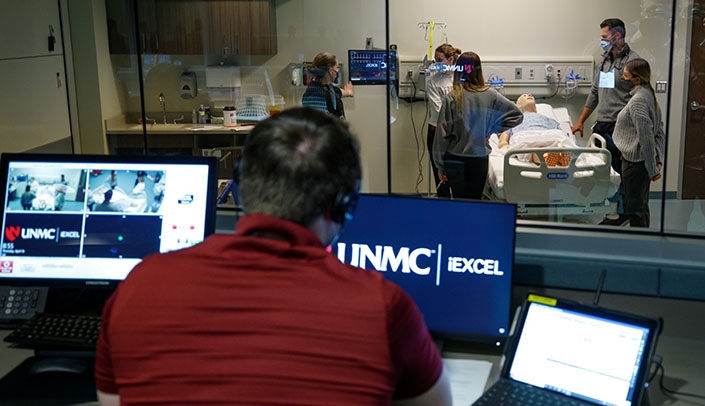Medical school graduates have mastered many facts, undergone endless tests, earned the highest scores and even snagged sought-after residencies.
But, “nothing prepares you for everyone calling you ‘doctor’ all of a sudden,” said Jill Zabih, MD, assistant professor of internal medicine.
Or when you have to take on the weight of making those first few decisions that can affect real patients’ real lives.
“It’s one thing to see it,” on rotations, Dr. Zabih said. “It’s another thing to do it. It’s a lot harder when you are in charge.”
Medical students graduate in May. In July, they are doctors. It’s an intimidating transition.
Thus, the College of Medicine’s new Residency Prep Course (RPC). RPC is the last course graduating medical students take before going out into the real world, as resident physicians.
“The RPC is a true enhancement to the curriculum,” said David O’Dell, MD, director of Phase 3 of the College of Medicine’s curriculum redesign to Train Physicians of Tomorrow.
Dr. Zabih co-directs the course with Abbey Fingeret, MD, assistant professor of surgical oncology.
The students spend the first two weeks of the course together as a class doing content relevant to students going into all residency specialties such as procedure simulation, professional development, delivering difficult news, rapid response team training, organizational skills, etc. This content is a mix of simulation with manikins, standardized patients and interactive didactics, and much of it takes place in the Dr. Edwin G. & Dorothy Balbach Davis Global Center.
Dr. Fingeret is enthusiastic about its immersive and interactive nature: “Our students have spent many hours learning basic science and clinical medicine. This course is the culmination of that education, providing an opportunity for our students to translate that knowledge into practical skills that will allow them to begin their residency training with useful experience and practical knowledge.”
The second two weeks are heavily weighted on the specialties they are going into.
The urgency of the moment, and the gravity of all that is about to come, heighten the experience for all involved.
“I appreciated thinking through those scenarios and the feedback that I got from the clinicians and my classmates,” said Oladapo Akinmoladun, who will be doing a residency in general surgery in July.
“This is the best class to teach,” Dr. Zabih said. “I could not ask for more engaged students.”
Although nothing can entirely prepare students for the increased responsibility of being a physician, the RPC aims to ease this transition.

What an outstanding opportunity for these soon-to-be doctors. As a patient of health care, I appreciate this additional training as it gives men and women the chance to practice what they've learned prior to impacting real people.